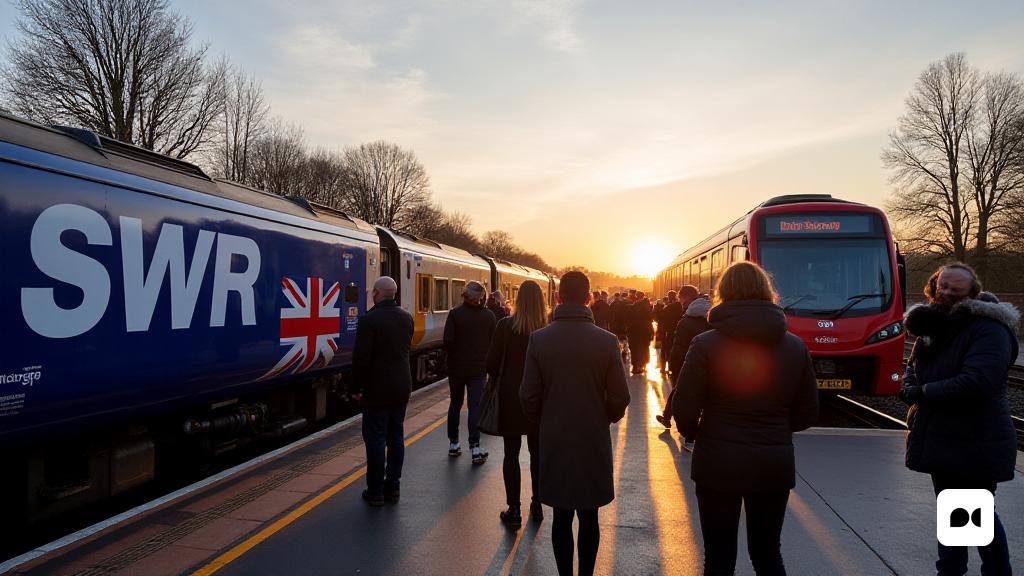South Western Railway’s Transition: A Milestone in Rail History
In a historic move, South Western Railway (SWR) has officially transitioned into public ownership, marking a significant shift in the landscape of British rail services. This renationalisation, spearheaded by the Labour government, sets a precedent for the future of rail travel in the UK.
The First Journey: A New Beginning
The inaugural public service from Woking to Surbiton departed at 05:36 on Sunday, a symbol of this new chapter, albeit with passengers relying on a bus service for part of the journey due to ongoing engineering work. This transition, while not without its challenges, is hailed as a ‘new dawn for rail’ by government officials.
Government’s Vision for Rail Improvement
While the government refrained from committing to immediate fare reductions, the focus has shifted to enhancing service quality and investing in vital infrastructure. Transport Secretary Heidi Alexander emphasized the need for value for money, acknowledging that taxpayers currently subsidize rail operations to the tune of £2 billion annually.
Union Reactions: Concerns Amidst Optimism
The unions have welcomed SWR’s renationalisation but voiced apprehensions regarding the outsourcing of essential staff roles, including cleaning and security services. RMT General Secretary Eddie Dempsey articulated the union’s stance, stressing the importance of re-integrating contracted-out workers to fully realize the benefits of public ownership.
The Road Ahead: Future Plans for Rail Services
With SWR now under the aegis of the Department for Transport, plans are underway for its integration into the forthcoming Great British Railways (GBR). This new body, expected to officially launch after parliamentary approval later this autumn, will oversee all rail infrastructure and operations across England, Wales, and Scotland.
Expansion of Public Ownership
The renationalisation of SWR is just the beginning. Two additional rail operators, C2C and Greater Anglia, are set to follow suit later this year. The government aims to bring nearly all passenger rail services in England back into public ownership by 2027, a move that has drawn criticism from opposition parties.
A Reflection on the Future of Rail Travel
As the UK embarks on this transformative journey in rail transport, the implications of SWR’s nationalisation will be closely monitored. Stakeholders from all sides will be keen to see whether the promises of improved services and better value for taxpayers materialize, or if the challenges of integration and operational efficiency will overshadow the initial optimism.

